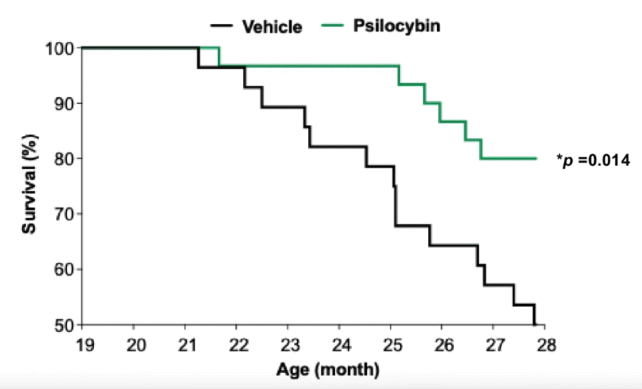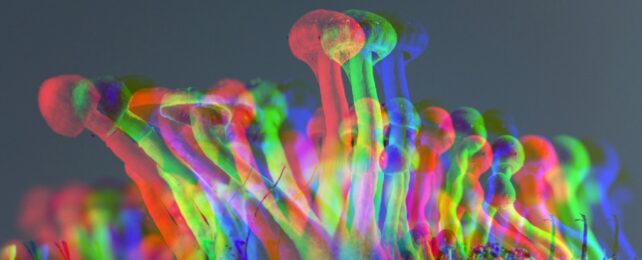Psilocybin's health benefits could extend beyond the mental realm. A new study in human cells and mice has found the first experimental evidence that the compound can increase longevity and fight signs of aging.
Being a psychedelic, psilocybin is usually investigated for its potential as a treatment for depression, anxiety, and other neurological disorders. But there hasn't been a whole lot of direct research into what effects it might have on biological aging.
For the new study, scientists at Emory University and Baylor College of Medicine in the US tested it on cultures of human cells and on live mice. Both cases showed drastic extensions of lifespan – treated cells lived more than 50 percent longer than untreated ones, while treated mice were much more likely to survive the whole period.
Related: Psychedelic Drugs Have Huge Therapeutic Potential. An Expert Explains Why.
"This study provides strong preclinical evidence that psilocybin may contribute to healthier aging – not just a longer lifespan, but a better quality of life in later years," says Ali John Zarrabi, a palliative care physician at Emory.
Adult human skin and fetal lung fibroblasts were treated with psilocin, a compound that is broken down into psilocybin by our body's metabolism. The cells were then monitored until they reached senescence, a state where they essentially 'run out' of cell divisions and go dormant.
At concentrations of 100 micromoles, treated lung cells took 57 percent longer to reach senescence, compared to untreated ones. Treated skin cells showed a 51 percent increase.

In the mouse studies, female mice aged 19 months (the rough equivalent of 60 to 65 years of age in humans) were given a monthly dose of psilocybin. After 10 months of treatment, 80 percent of the mice given psilocybin were still alive, compared to 50 percent of the control group.
Although aging signs weren't studied methodically, treated mice seemed to have fewer features of old age too, such as reduced fur quality and greater numbers of white hairs.
"These findings support the feasibility of psilocybin treatment in older adults," the researchers write.
"However, additional studies are warranted to identify optimized protocols for therapeutic efficacy, including the age of treatment initiation, frequency and dose of treatments, and to determine if treatment impacts maximal lifespan."
The research was published in the journal npj Aging.
